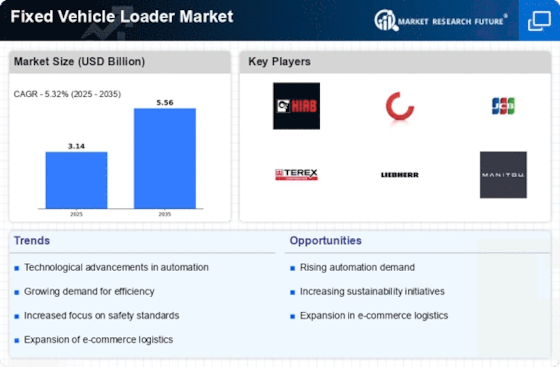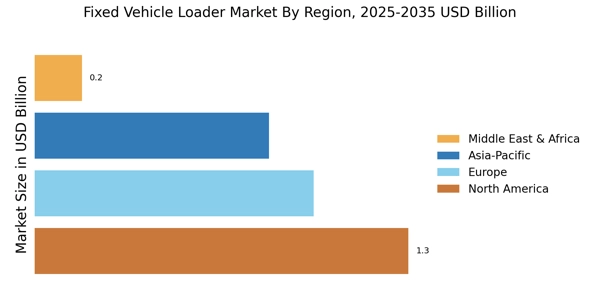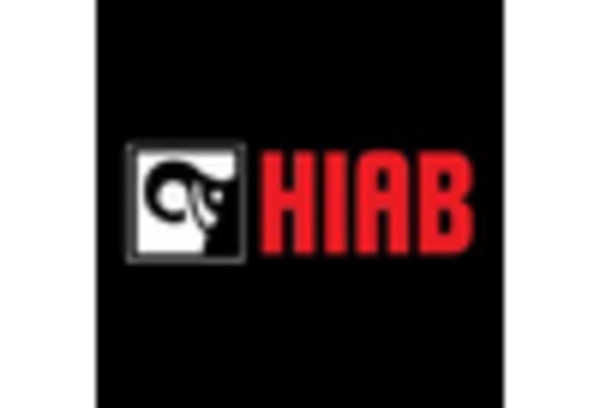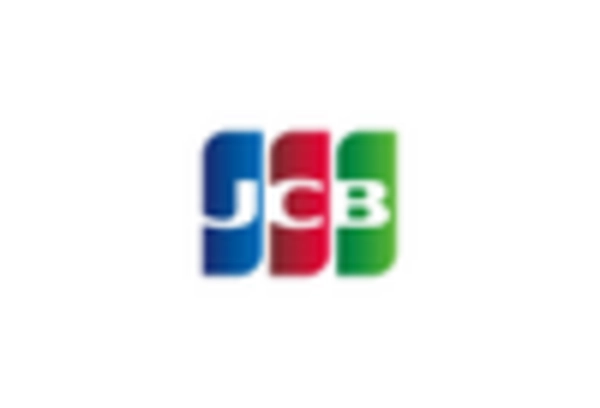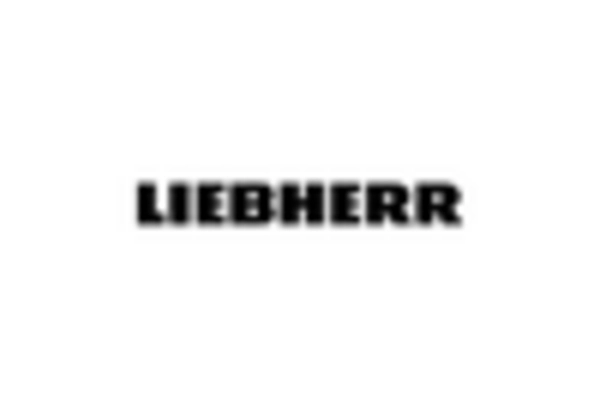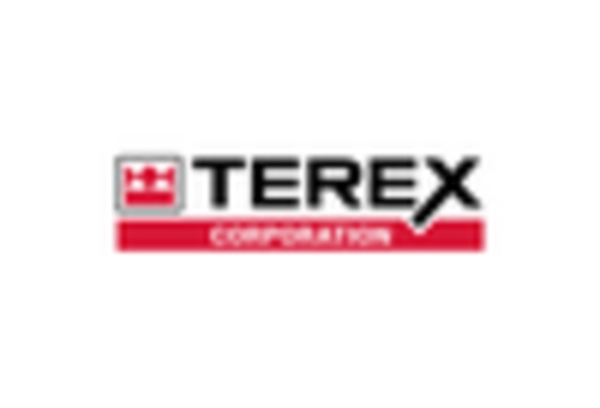Government Regulations and Standards
The Fixed Vehicle Loader Market is also shaped by government regulations and standards aimed at enhancing safety and operational efficiency. Regulatory bodies are increasingly implementing stringent guidelines regarding loading practices, vehicle safety, and environmental impact. These regulations compel companies to invest in modern loading solutions that comply with safety standards. For instance, recent legislation has mandated the use of specific loading equipment to ensure worker safety and reduce accidents. This regulatory environment creates a favorable market for fixed vehicle loaders that meet these compliance requirements. As businesses adapt to these changes, the demand for compliant loading solutions is expected to rise, further propelling growth in the Fixed Vehicle Loader Market.
Expansion of E-commerce and Retail Sectors
The Fixed Vehicle Loader Market is significantly influenced by the expansion of e-commerce and retail sectors. As online shopping continues to gain traction, the need for efficient loading and unloading solutions becomes increasingly critical. E-commerce companies require reliable loading systems to handle the high volume of goods being transported. Recent statistics indicate that e-commerce sales have seen a steady increase, with projections suggesting a growth rate of around 10% annually. This surge in demand for logistics solutions directly correlates with the need for advanced fixed vehicle loaders that can accommodate diverse cargo types. As a result, manufacturers are focusing on developing versatile loading systems that cater to the unique requirements of the e-commerce sector, thereby driving growth within the Fixed Vehicle Loader Market.
Rising Demand for Efficient Loading Solutions
The Fixed Vehicle Loader Market experiences a notable surge in demand for efficient loading solutions. This trend is primarily driven by the increasing need for streamlined logistics and transportation processes. Companies are seeking to enhance operational efficiency, reduce loading times, and minimize labor costs. According to recent data, the market is projected to grow at a compound annual growth rate of approximately 5.2% over the next five years. This growth is indicative of a broader shift towards automation and mechanization in loading operations, as businesses aim to optimize their supply chains. Consequently, manufacturers of fixed vehicle loaders are innovating to meet these demands, leading to advancements in design and functionality within the Fixed Vehicle Loader Market.
Technological Innovations in Loading Equipment
Technological innovations play a pivotal role in shaping the Fixed Vehicle Loader Market. The integration of advanced technologies such as automation, IoT, and smart loading systems is revolutionizing the way loading operations are conducted. These innovations enhance efficiency, accuracy, and safety in loading processes. For example, automated fixed vehicle loaders equipped with sensors and real-time monitoring capabilities are becoming increasingly prevalent. This trend is supported by data indicating that the adoption of smart technologies in logistics is expected to increase by 15% over the next few years. As companies seek to leverage these advancements to improve their operational capabilities, the demand for technologically advanced fixed vehicle loaders is likely to rise, driving growth within the Fixed Vehicle Loader Market.
Focus on Cost Reduction and Operational Efficiency
The Fixed Vehicle Loader Market is significantly influenced by the ongoing focus on cost reduction and operational efficiency among businesses. Companies are continually seeking ways to optimize their logistics operations to minimize expenses and maximize productivity. This focus has led to an increased investment in fixed vehicle loaders that offer enhanced performance and reliability. Recent market analysis suggests that businesses that implement efficient loading solutions can reduce operational costs by up to 20%. As a result, manufacturers are responding to this demand by developing loaders that not only improve loading times but also reduce maintenance costs. This trend is expected to drive further growth in the Fixed Vehicle Loader Market as companies prioritize investments in cost-effective loading solutions.


